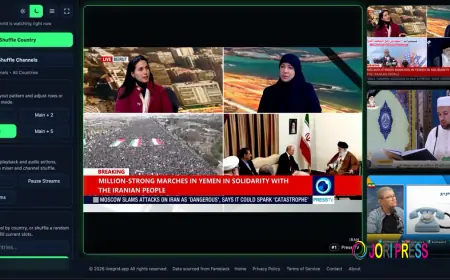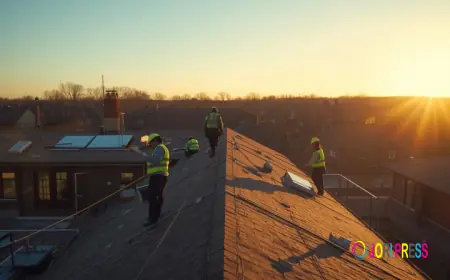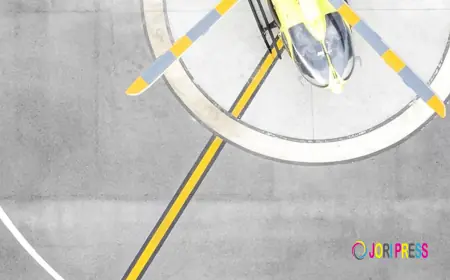Political Polarization: Why It’s Growing and What to Do
The Division We’re Feeling in Everyday Life
Lately, I’ve noticed more people in my life—friends, family, even neighbors—having different opinions that seem harder to bridge than before. Discussions that once felt open and curious now often feel like debates with clear sides. From what I’ve seen and read, this shift isn’t just happening in my circle. It’s happening across countries, communities, and platforms. Political polarization is growing, and it’s shaping how we talk, listen, and even form relationships.
I started digging into why this divide is expanding, and it turns out there are some real, data-driven reasons behind it. Studies show people are increasingly aligning themselves with one political group and viewing the other side less favorably. It’s not just about issues anymore—it’s about identity. I’ve observed that once someone strongly identifies with a group, they’re less likely to engage with different perspectives. That creates echo chambers, both online and offline.
What’s Driving This Growing Divide
From my perspective, several factors are contributing to the rise of political polarization. It didn’t happen overnight, but certain patterns have made it more visible and harder to ignore. Here's what I’ve come to understand:
-
Media fragmentation: People consume news from highly targeted sources that reinforce their existing views. This shapes beliefs and makes others’ opinions seem “wrong” instead of just different.
-
Social media algorithms: Platforms prioritize content that gets clicks, which often includes emotionally charged posts. That kind of content tends to emphasize conflict over connection.
-
Geographic sorting: Many people live in areas where most others share similar views, making it easier to assume that everyone thinks the same.
-
Political strategy: Campaigns often frame issues in a way that mobilizes base supporters by emphasizing differences rather than common goals.
While all these factors are backed by research, I’ve felt the impact personally. Whether it’s seeing divisive comments under news posts or witnessing tense moments during social gatherings, the shift is real. I’ve learned to navigate conversations more mindfully, especially when I know someone holds a viewpoint different from mine.
One afternoon, after a long chat about current events with a friend who sees things differently than I do, I stopped by a local shop to reset. I had some time to relax while waiting for my smoke shop delivery, and it gave me a moment to reflect on how important it is to keep calm and open in these discussions. That time to decompress helped me come back to the topic later with more understanding and less stress.
What We Can Actually Do About It
Even though the divide seems wide, I don’t believe we’re stuck. In fact, I think small, consistent efforts can help ease the tension over time. I’ve been trying out a few approaches to better connect with people who think differently, and some of them have made real progress.
Here’s what’s been helpful for me:
-
Asking questions: Instead of reacting, I try to understand why someone feels the way they do.
-
Avoiding labels: I focus on issues, not identity. That helps reduce defensiveness in conversations.
-
Staying informed from multiple sources: I check news from different viewpoints to see a fuller picture.
-
Focusing on shared values: Most people, no matter their stance, care about fairness, safety, and opportunity.
These are things anyone can try, and they don’t require a platform or special skills—just curiosity and respect. I’ve seen firsthand how stepping away from “us vs. them” thinking allows space for more useful, honest conversations. It’s not always easy, but it’s possible.
Creating More Space for Respectful Dialogue
What’s helped me the most is building routines that lower stress and allow space to think clearly. When I’m feeling overwhelmed or stuck in a loop of headlines and opinions, I take time to disconnect. Sometimes that looks like going for a walk, reading, or relaxing with a familiar routine.
Recently, I was browsing an ejuice store online while listening to a podcast about bridging political divides. The combination of learning and relaxing reminded me that staying grounded helps me approach others with more patience. Whether it’s politics, work, or relationships, I’ve realized the same principle applies: when I take care of my own energy, I show up better for conversations that matter.
A Path Toward Understanding Starts With Small Steps
Final Thoughts
Political polarization may be growing, but that doesn’t mean it’s unfixable. From what I’ve learned, the solution isn’t about forcing agreement—it’s about making space for respectful conversations. When I listen more than I speak, question more than I judge, and keep curiosity at the center, I find that walls start to come down.
Even in today’s divided world, I’ve seen how understanding can grow when we choose to slow down and connect beyond the headlines. Whether it’s through one-on-one talks or simply reading a range of perspectives, small actions can lead to meaningful change.
So I’ll keep building these habits—listening with intention, relaxing when needed, and being open to learning. Because at the end of the day, change starts with how we show up, one conversation at a time.
What's Your Reaction?
 Like
0
Like
0
 Dislike
0
Dislike
0
 Love
0
Love
0
 Funny
0
Funny
0
 Angry
0
Angry
0
 Sad
0
Sad
0
 Wow
0
Wow
0
















































